Episodes
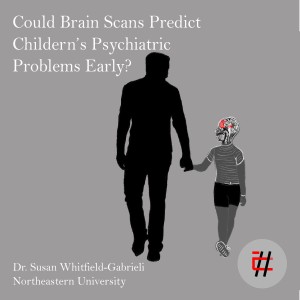
Wednesday May 20, 2020
Wednesday May 20, 2020
Images of neurodevelopment trajectory in children may be a tool to predict psychiatric symptoms later in life. We discuss the implications of specific patterns of resting-state functional connectivity in regions of the brain with Dr. Susan Whitfield-Gabrieli, a Professor and the Director of Northeastern University Brain Imaging Centre, and a Visiting Scientist at MIT. Interestingly, this 4-year longitudinal study was able to predict psychiatric issues such as attention disorders, anxiety, or depression in adolescences through fMRI scans. These findings produce a strategy to combat psychiatric illnesses in children through early detection and precise treatment.
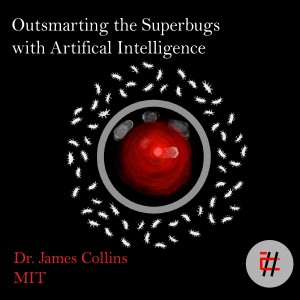
Wednesday Apr 29, 2020
Wednesday Apr 29, 2020
Antimicrobial resistance is one of the top health concerns, according to the World Health Organization (WHO). It is estimated that antimicrobial resistance could cause as many as 10 million deaths per year by 2050. In this episode, we discuss the power of machine learning against drug-resistant infections with Dr. James Collins from MIT and Harvard, and one of the pioneers in synthetic biology. His team discovered a powerful antibiotic molecule by harnessing artificial intelligence to select potential candidates from a chemical library with more than 100 million molecules, and successfully expanded the antibiotic arsenal against a critical pathogen classified by the WHO.

Saturday Apr 11, 2020
Saturday Apr 11, 2020
The COVID-19 pandemic has left the world in a state of disbelief and panic. To help mitigate this panic and hopefully address some of the common questions, we will be kicking off our 360 Perspective series with a discussion with a panel of experts in the fields of medicine, sociology, microbiology, economics, and epidemiology. We hope that this episode will give you a well-informed snapshot of this pandemic and what is to come.
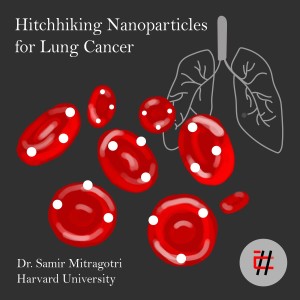
Wednesday Mar 25, 2020
Wednesday Mar 25, 2020
Cancer claims the lives of 1 in 6 individuals globally, and most patients suffer from some form of lung cancer. The efficacy of chemotherapy is low due to ineffective targeting and poor drug accumulation. In this episode, we speak with Dr. Samir Mitragotri on how his team assembled a way to utilize the body’s red blood cells to smuggle nanoparticles to the affected lung in a trojan horse-like fashion. Remarkably, this extended the circulation time of the drug and increased delivery by 10-fold in comparison to free nanoparticles. Dr. Samir Mitragotri is a Hiller Professor of Bioengineering and Hansjörg Wyss Professor of Biologically Inspired Engineering at Harvard University. He has been inducted into the National Academies of Engineering and Medicine and the American Association for the Advancement of Science. His expertise and hard work have led to 210 publications and around 150 patents.
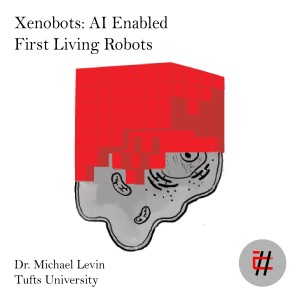
Wednesday Mar 04, 2020
Wednesday Mar 04, 2020
Living machines seem like a plot for science fiction, but now is a groundbreaking invention! In this episode, we hear from Dr. Josh Bongard from University of Vermont, and Dr. Michael Levin from Tufts University, who invented the WORLD’s FIRST living machines termed Xenobots derived from African frog embryos. This was possible by artificial intelligence processing a million combinations into a few feasible conformations using an evolutionary algorithm. These cells-constructed living organisms can carry cargo, remove debris, and regenerate.
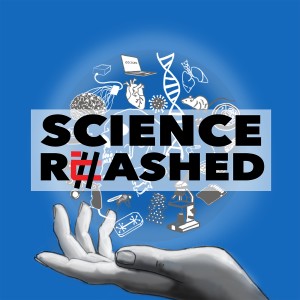
Wednesday Feb 12, 2020
Wednesday Feb 12, 2020
Is it possible to transplant an organ from a donor on the East Coast to a patient on the West Coast without losing its viability? “Impossible with current technologies,” says Dr. Korkut Uygun from the Center for Engineering in Medicine at Massachusetts General Hospital and Harvard Medical School. In the United States alone, one-fifth of patients who need a transplant will not receive one in time. Scientists in the field are combating this problem by developing methods to increase preservation time while reducing organ damage. In this episode, we discuss how Dr. Korkut Uygun and Dr. Reinier J. de Vries were able to extend human liver preservation from the current average of 12 hours to 27 hours. The scientist will help us elucidate two key techniques for organ preservation, namely supercooling and room temperature machine perfusion, and dive deeply into the challenges they faced in this endeavor and the impact of this technology for future patients in need of transplantation.

Wednesday Jan 22, 2020
Wednesday Jan 22, 2020
As bitter cold and gusty winds kick in, a cup of warm tea or coffee brings comfort, but one day might also help deliver actual medicine. In this episode, we will explore this idea with Dr. Sahab Babaee and Dr. Giovanni Traverso. They developed temperature-sensitive materials that change shape with warm water, enabling a range of sophisticated less-invasive gastrointestinal modalities. Dr. Traverso is an Assistant Professor in the Department of Mechanical Engineering at MIT and a gastroenterologist at Brigham and Women’s Hospital, Harvard Medical School.
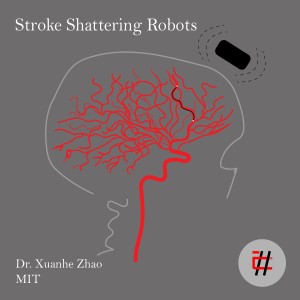
Wednesday Jan 01, 2020
Wednesday Jan 01, 2020
Robots! Yes, robotic thread. In this episode, we speak with Dr. Zhao, whose team created a robotic-like thread that can slip through the human brain’s vasculature. Dr. Xuanhe Zhao is an Associate Professor in the Department of Mechanical Engineering at MIT. His team bridges the interface between biology and machines by integrating unprecedented functions and capabilities in magnetic soft robots. In this episode, we discuss briefly about the magnetically actuated soft robotics used in healthcare, emergent need of improvement in this field, how his team’s exciting research on magnetic robots obviate these limitations and expands the field to new applications.
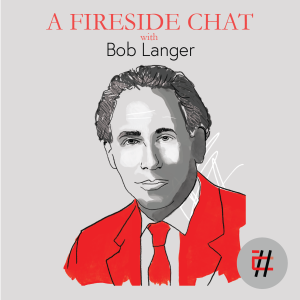
Wednesday Dec 04, 2019
Wednesday Dec 04, 2019
Our first Meet the Legend series features Dr. Bob Langer, the David H. Koch Institute Professor in the Department of Chemical Engineering at MIT. Trained as a chemical engineer at Cornell University and MIT, he is a globally recognized researcher in biotechnology, and one of the 10 most cited individuals in history. He has over 1,400 scientific papers and holds over 1,350 granted or pending patents. He runs the largest biomedical engineering research laboratory in the world, and his research has benefited millions of lives worldwide.
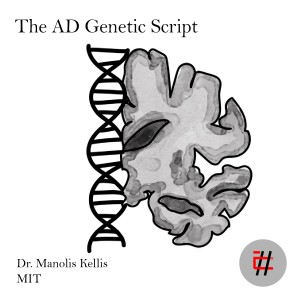
Thursday Nov 07, 2019
Thursday Nov 07, 2019
Advances in technology and computational power opened the doors to dissecting human genomic datasets and understanding the complex genetic interactions underlying disease. In this episode, Dr. Manolis Kellis discusses his recent paper with Dr. Tsai analyzing the transcriptomes of 48 postmortem Alzheimer’s Disease brain samples. Dr. Kellis is a Professor of Computer Science at MIT, the head of the MIT Computational Biology Group, the principal investigator of CSAIL (Computer Science and Artificial Intelligence Lab), and an Institute Member at the Broad Institute.


